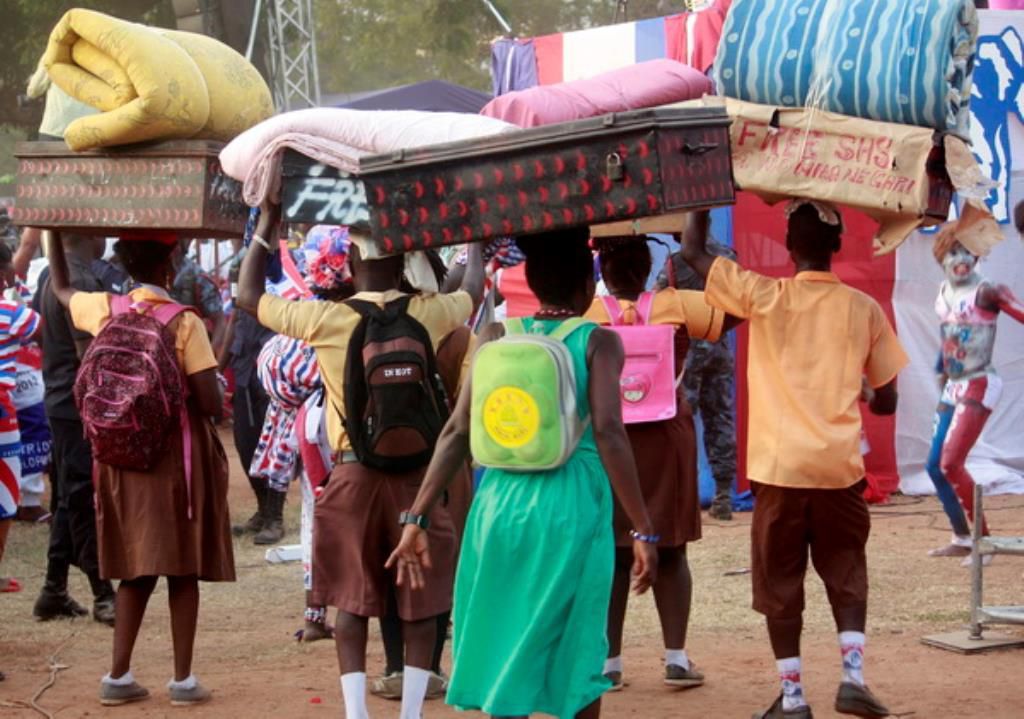Parents spend more money on free SHS than gov't - New study reveals
)
According to the findings, the government's average expenditure per student for boarding schools was GHS 1,147, and for day students, it was GHS 1,107. In contrast, parents were found to be spending GHS 2,477 on prospectuses for their wards in boarding schools. Additionally, they incurred an extra expense of GHS 4,000 for personal items such as perfume, detergents, and sanitary pads during the 2021–2022 academic year.
Senior Programmes Officer at African Education Watch, Divine Kpe, presented these findings during a conference on education financing in Accra. The report, titled "The Financial Burden of the Free SHS Policy and Implications for Equitable Access to Education," shed light on the financial challenges faced by parents.

The government's expenses were analyzed based on budgetary allocations and expenditures related to the free SHS program, obtained from the Ministry of Education, Ministry of Finance, and Parliament for the academic years 2017–18 to 2022–23.
Parental costs were assessed using historical prices of prospectus items from the Ghana Statistical Service.
The report highlighted a 38% increase in prospectus prices since the initial implementation stage of the policy. Divine Kpe emphasized that parents of continuing-day students reported spending an average of GH¢4,400 annually, with transportation accounting for 40%, breakfast for 50%, and 10% on books.
The report disclosed that parents of day students spent GHC5,507, including prospectus costs, exceeding the government's spending of GHS 1,107. Financial constraints were identified as a factor contributing to a 15% failure of candidates to honour their admission in the 2022–2023 academic year, with high prospectus and education material costs being major contributors.
To address the issue, the report recommended that the Ministry of Education develop and implement a strategy, focusing on children from the poorest households using data from the LEAP program. This approach would enable the government to allocate more funds to cover the full cost of secondary education for students from lower-income households. Additionally, the report urged the Ministry of Finance to enhance the disbursement of funds under the policy in alignment with objectives, implementation arrangements, and cash flow projections.
The Akufo-Addo government has faced increasing pressure to reassess the Free SHS policy, especially as it significantly impacts the country's revenue.
Various stakeholders, including the opposition NDC, are urging the government to reevaluate the Free SHS program and consider making expenditure cuts to alleviate the financial strain on the nation. Additionally, civil society organizations are advocating for a review of the program, suggesting that it should be targeted specifically at individuals who are genuinely unable to afford their secondary education.
One notable figure expressing concern is Prof. Stephen Adei, the Chairman of the National Development Planning Commission. Prof. Adei highlights that the GH¢7.6 billion expenditure on the program over the past five years is taking a toll on Ghana's economy, emphasizing the need for a thorough review of the Free SHS policy.
)
)
)
)
)
)
)
)
)
)
)
)
)
)